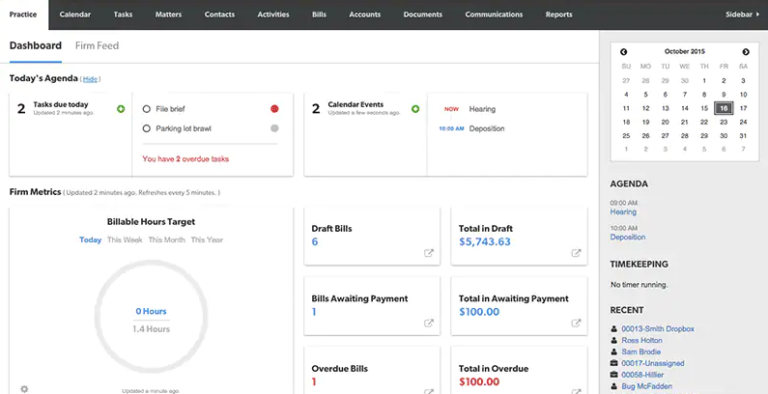Top & Best Real estate financing Review 2022 – How to Select Ultimate Buyer’s Guide
Real estate financing: What is the best of 2022?
If you dream of owning your home, but cash payment is not an option, this article is for you. Today, we are going to explain everything about real estate financing.
Real estate financing is one of the credit alternatives for those who want to own a property. But the fact is that it is necessary to choose well the conditions that involve the financing and that vary a lot depending on the bank or financial institution you choose.
Therefore, we will show in this article how real estate financing works and what you should consider to choose the ideal one according to your budget.
First, the most important
- In real estate financing you need to make a down payment and pay the rest in installments.
- It is necessary to consider interest, charges, insurance and updates that may increase the financing installments.
- Researching well and doing simulations is the best way to choose the best real estate financing.
You may also like:
- Online loan: How to choose the best in 2022
- Home insurance: How to choose yours in 2022
- Negative loan: What is the best in 2022?
Best Real Estate Financing: Our Recommendations
- The most traditional of all
- The best online financing
- Ideal for commercial real estate
Hiring Guide: What you need to know about real estate financing
Real estate financing is one of the alternatives available to you who want to buy your own home or commercial property.
In addition to allowing you to pay little by little, over a long period, the financing still has more affordable rates compared to other types of credit.
But as each bank and financial institution offers different real estate financing packages, with different rules, rates and conditions, you need to understand how this process works to choose the best option for you. And that is what we are going to deal with in this Guide.
What is real estate financing and how does it work?
Property financing is a line of credit offered by financial institutions, public or private banks, which is used to purchase new or used real estate, house or apartment, under construction or even land.
It works like this: You choose the property you want to buy and also a bank that will be your creditor and will grant the financing. The lender will ask for some documents and analyze your ability to pay for the financing.
If and when the property financing is approved, the lender will then pay the agreed amount directly to the seller of the property. This value is, in general, only a percentage of the total price of the property.
From there, you will then have to pay back to the bank for the amount financed. This payment is made monthly in installments that include the financing amount plus interest and charges. And in general, real estate financing can last up to 35 years.
Who can apply for a mortgage?
There are some requirements for a person to be able to hire a mortgage.
And although these rules may vary from one banking institution to another, in general, there are some that are common to all creditors. Are they:
-
- Age of majority , you must be over 18 years of age.
- Prove fixed income .
- Not having registration with credit restriction bodies , that is, you must have your name cleared in the square.
Is it possible to finance 100% of a property?
The general rule says that no, it is not possible to get a mortgage that covers 100% of the value of the property.
According to a survey conducted by the Regional Council of Realtors of the State of São Paulo (Creci-SP), of nine banks, only one financed the full value of the property ( 1 ) . And yet, with very restrictive rules.
The most common is that institutions finance between 70% and 80% of the property’s value. But that percentage can vary a little more or less depending on the lender bank.
The percentage of financing often varies according to the value of the property and its income. This is because, as a rule, financing cannot compromise more than 35% of your income.
So, as banks finance only part of the total value of the property, you will need to pay the rest in cash. It is called the entrance.
What should be the entry for real estate financing?
This can vary according to your family income. But in general, the minimum down payment you must give to buy a financed property is 10% of the total sale value.
Regarding the maximum amount that you can give in general, in general, it should not exceed 30% to not compromise your income.
But it is worth pointing out that the higher the input you give, the better the real estate financing conditions will be, with less installments and lower interest rates.
What are the differences between loan, consortium and real estate financing?
If you do not have the full amount to pay the property in cash, these are the three main alternatives you will have: Loan, consortium and financing.
In the loan you borrow an amount of money from a bank or financial institution and can use it however you want. However, interest rates are quite high.
Real estate financing is provided by the financial institution for a specific purpose.
Real estate financing is granted by the financial institution for a specific purpose. You finance a property or a vehicle, for example.
That is, it is necessary to prove where you will use the credit. For this to happen, the bank assesses this asset and demands that it be left as collateral for the entire payment period, until you have paid off the debt.
In the consortium, the difference is that you don’t borrow money. Therefore, there is no interest rate. In the real estate consortium you make forced savings.
That’s because you join a group of people who have the same interest as you and deposit a monthly amount of money.
Every month someone is drawn and can use the full amount of “savings” to buy the item. However, there are also fees that are charged here.
Below you can see the main differences between these three options for buying a property.
What are the advantages and disadvantages of real estate financing?
The main advantage of real estate financing is that this type of credit helps those who want to buy their own home and stop paying rent. But not only that. Check out other advantages of financing a property below:
-
- The property can be used immediately .
- Payment of installments is long term.
- You do not need to have the full value of the property in sight .
- It is possible to use FGTS as an entry and amortization of debt.
When considering the negative aspects of real estate financing, it is necessary to remember that, as in other types of credit, in financing it is also necessary to bear fees, interest and other charges that make the total value more expensive.
In addition, you commit your budget for a long period. Therefore, before signing the contract, we recommend that you carefully read the contract and assess your long-term financial condition well.
How to finance a property?
To finance a property the first step is to ensure that you meet the prerequisites of those who can apply for a mortgage, as we have already seen in this article.
Then, you must choose a bank, trusted financial institution or a construction company, and run a simulation on the website.
It is with the simulation that you will understand how much the financing will cost, with fees, interest and charges included, and find out how much you will have to pay, how many and what will be the monthly installments and so on.
Did you know that in order to get a mortgage, you need to present a proof of income, whether you are an employed or informal worker?
If you are an employed person, you must present the holorite, a document that certifies the payment of your salary.
If you are self-employed, you must provide proof of income tax, service agreement or union statement for your category.
That done, you can either go to the bank or even ask for financing through the website or the application on your smartphone. The bank will then ask for some personal documents that will be used for the credit analysis.
At the end of this process, the bank delivers the contract to be signed by you and the seller of the property. The contract is then registered with a Property Registry Office, making you the legal owner of the property.
Once this is done, you will then begin to pay the installments, which, in general, can occur 30 days after the purchase is made. Payment can be made by automatic debit or bank slip, depending on the creditor.
Hiring Criteria: How to Compare the Types of Real Estate Financing
As we have seen, the best way to choose real estate financing is to do an online simulation to compare rates between different banks. But at that time, you need to understand what will differentiate one financing plan from another.
To help you in this step, we have listed below the factors that you should take into account when choosing the best real estate financing. Look:
- Types of financing
- Amortization system
- Monthly charge
- Pre-fixed or Post-fixed
- TR monthly correction
In the following, we will explain each of these points in detail to you.
Types of financing
Financing for the purchase of a house or apartment can be carried out using funds from the Guarantee Fund for Time of Service (FGTS), Savings and Loan System (SBPE) or directly with the construction company, in the case of properties under construction or on the plant.
Financing with the use of FGTS resources is part of the Housing Finance System (SFH).
In this case, the value of the property and the financing have limits that vary from time to time, and only people with a certain family income can participate, which also varies according to the region of the country.
Therefore, check the conditions of this type of real estate financing with the bank of your choice.
With SBPE there is no income limit. Financing made directly with construction companies has no limits on the amounts financed. However, in this modality, if the company goes bankrupt you may lose your home.
Amortization system
Also, look at the debt amortization system for real estate financing. In this case, the type of system may also vary by bank.
But, in general, we can mention two most common mortgage financing amortization systems:
- Constant Amortization System (SAC): In this system, the value of the portion of the monthly charge to amortize the financing is constant and the interest portion is decreasing.
- Price Table: With this system, the value of the installment that will amortize the financing is increasing and interest is decreasing.
Monthly charge
Also analyze the monthly mortgage charge. In general, the monthly charge will include:
- Provision of amortization and interest .
- Rate creditor bank Administration.
- Insurance , for indemnity in case of death or permanent disability and physical damage to the property.
Pre-fixed or Post-fixed
In real estate financing, as in other long-term loans, you must also choose between pre-fixed or post-fixed interest options, which refer to the monetary correction of the financing.
This means that there are different ways of calculating the interest rate that affect the installments of your home loan.
In pre-fixed interest, interest rates are previously defined in the contract, that is, the customer will know exactly the amount he will pay in each installment.
In post-fixed interest, the interest rate varies during the contract according to inflation rates, and is not fixed.
TR monthly correction
It is also worth noting that the outstanding balance of real estate financing is adjusted monthly based on the TR, the Reference Rate calculated by the Central Bank.
This fee can also make your installment more expensive in the end. Therefore, the best way to understand the impact of TR on your financing is to do a credit simulation.
abstract
Real estate financing is one of the ways in which you can pay for your home, without having to have all the money to pay in cash. In this modality, it is only necessary that you have the amount of the entry and prove that you will be able to pay for the financing installments.
With this, you can have up to 35 years to pay for the financing of the property. However, it must be borne in mind that financing conditions, interest, charges, insurance and updates vary widely from one bank to another. Therefore, it is essential that you do simulations online before closing the contract.
Glossary
- Financing: Amount borrowed by the bank for you to buy your property.
- Interest: Financing cost, being part of the monthly charge.
- Amortization: Amount paid to reduce the outstanding balance of real estate financing.
- Update: Monetary correction on the financing debt balance.
- Amortization term : Term defined in the contract for the payment of the financing.
real estate financing
real estate financing pdf
real estate financing methods
real estate financing meaning
types of real estate financing
real estate financing options
real estate financing books
how to get financing for real estate investment
What is real estate financing?
How can I finance more than 10 properties?
Who has the best mortgage rates for investment property?
What is the most profitable real estate?
What are the 4 types of real estate?
Why real estate is a bad investment?
Can you go into real estate with a finance degree?
Is real estate part of finance?
How do you get financing for real estate?
How much can I borrow investment property?
What do most careers in finance deal with?
How do I finance my first real estate investment?
How do I borrow money to buy a rental property?
Can I use a SBA loan to buy real estate?




